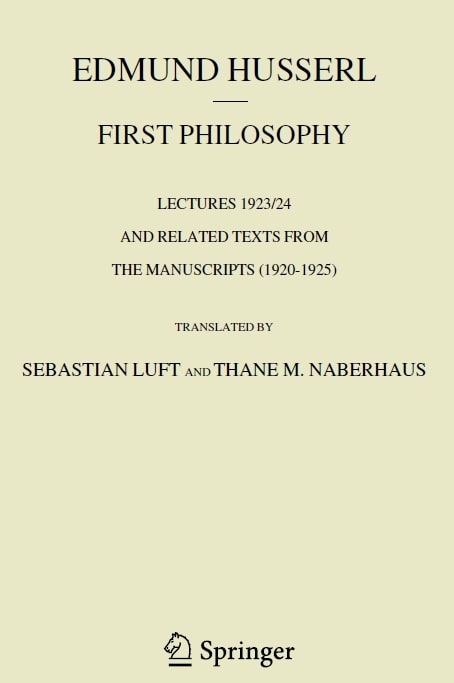Repository | Book | Chapter

(2019) First philosophy, Dordrecht, Springer.
From Locke to the radical consequence of Berkeley's purely immanent philosophy
Edmund Husserl
pp. 145-161
A particular basis of our critique above concerned Locke's doctrine of material substances and their qualities, or in other words his attempt to show how true exterior existence presents itself internally in the domain of ideas, how the subject, which has in an immediate way only the tabula rasa of its ideas, there obtains for itself | an image of what is outside and the conviction that it truly exists. In the same vein, our critique could then proceed to address the entire series of Locke's subsequent remarks pertaining to the constitutive categories of the cognition of nature, to space, time, power, cause, effect, and so on. [However,] to continue in this direction is of no appreciable interest to us.
Publication details
DOI: 10.1007/978-94-024-1597-1_8
Full citation:
Husserl, E. (2019). From Locke to the radical consequence of Berkeley's purely immanent philosophy, in First philosophy, Dordrecht, Springer, pp. 145-161.
This document is unfortunately not available for download at the moment.



